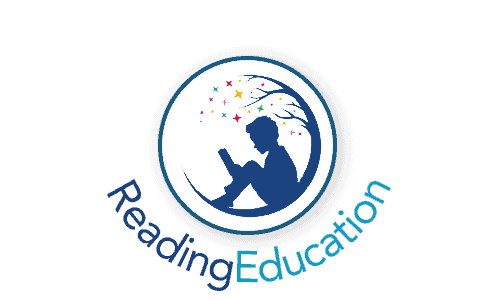Learning to read isn’t merely about reading books. For a child to fully grasp and absorb all facets of learning – reading included – it is vital to develop their ever-growing, sponge-like brains using a vast array of activities, tasks, and games, designed to help their grey matter work more efficiently, and, therefore, more effectively. In short, boosting their overall development is the quickest way to boost reading skills. So, in today’s article, we’re going to furnish you with five fun activities you and your five-year-old can do together to get their highly-receptive neurons firing on all cylinders.
Seven Activities To Boost Reading Skills and Development in Five-Year-Olds
When taking the first steps on their learning-to-read journey, it’s likely that your five-year-old will have taken part in synthetic phonic activities at school. Finding time to play games and indulge in activities that involve letters and sounds is the perfect way to complement what they’re learning during school hours and further enhance their development.
#1 – Phonics Games
Letter and Sound Snap & Bingo: Create homemade flashcards by writing letters of pieces of card or paper – making two for each letter of the alphabet. These can be used to play either Snap or Bingo (or both!). To play the latter, create a bingo card with eight to ten boxes, with a random letter in each box. Take it in turns to be the bingo caller or even get another family member involved to help out! Both Snap and Bingo are fun ways to develop letter recognition and help your child understand letter sounds.
Phonics Fishing: Attach a paper clip to each of your homemade letter flashcards, then attach a magnet to a piece of string. Say a letter sound then ask your child to ‘fish’ for that specific sound.
I Spy: Another childhood classic that is a superb choice for helping your five-year-old associate letters with words, as well as understanding letter sounds. I Spy can be played anywhere at any time, so if you’re ever stuck for something to do, start playing I Spy!
#2 – Can You Remember?
The Memory Tray:
- Grab a tray and cover it in half a dozen household items, toys, or anything else that is familiar to your child.
- Ask your child to look at the tray and remember what’s on there.
- After ten seconds, cover the tray with a kitchen towel or pillow, and ask them to recall all of the items.
Not only will this help with boosting their short-term memory, but it will also help to grow their confidence with word pronunciation and speaking.
Memories Order: Make a list of events or things you and your child have done together, either as a list or use photos if you have them. Put them in the wrong order and ask your child to put them in the correct order.
Shopping List: Ok, so not strictly a game per se, but shopping lists are a perfect way to test your child’s memory. Before going shopping, ask them to look at the list, then, when you reach the supermarket, ask them to recite as many items from the list as they can. Go through the list with them as you shop, asking them to point out any food items they recognise.
#3 – Listen Out!
Simon Says: Simon Says is a classic example of helping your child to practise listening and speaking – not to mention boosting their memory – without them even realising it!
What’s The Instrument?: Music is another medium that can be used to boost reading and overall literacy and development. For example, “What’s The Instrument” teaches children about…you guessed it…instruments! Together, listen to music and try to identify the instruments being played. Make a list of said instruments and then head over to Google and show your child pictures of the instruments and how they’re spelt and pronounced.
#4 – Let’s Act!
Puppet Show: Create a puppet theatre using chairs and a towel, encouraging your five-year-old to retell or make up any story they like. Ask other family members to watch and possibly even get involved!
Dressing Up: As the name suggests, the dressing up game involves getting dressed up in different outfits and acting out stories or playing certain characters from their favourite books or TV shows.
#5 – Arty Words
Fridge Letters: Encourage your child to use magnetic letters to spell words and names whenever they’re in the kitchen. Don’t forget, magnetic letters can also be used on radiators, so in theory, you could put them throughout your whole house! Just remember to turn the radiator off before allowing your child to play with them.
Clay Words: Modelling clay is one of the best mediums for fostering creativity, so we recommend using it for all manner of purposes – including spelling out words and names using the clay.
Jigsaws: Jigsaws are a simple yet effective tool for boosting cognitive development. What’s more, they’re also great for bonding with your child and having fun!
#6 – Technology Games
Watch The Show and Read The Book: Many books are adapted for TV; therefore, watching the TV adaptations of your child’s favourite books is a great way for them to understand the story and characters. Ask them what they like and dislike about the characters and story in both the book and TV show.
DVDs: DVD covers can actually be an effective learning tool. Before watching a DVD, ask your child to describe what they see on the cover and if they can read or recognise any words.
#7 – Reading
Read Books: A list of activities that help boost reading skills and development wouldn’t be complete without reading being mentioned, so here we are! Read all types of books with your child – fiction, non-fiction, poetry etc. Take in turns to read, and always discuss what has been read with your little one to gauge their understanding and opinions.

